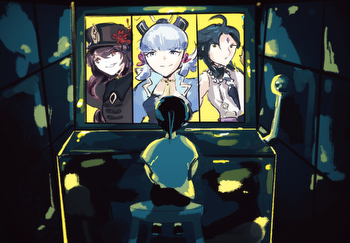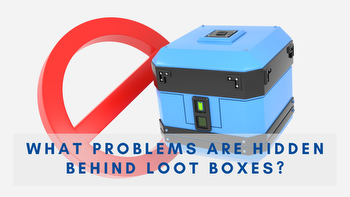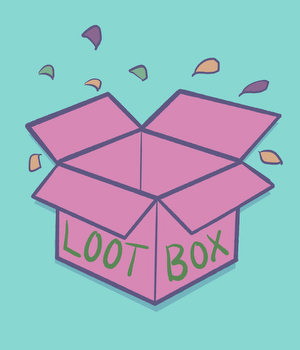A Comparison Between Video Game Bonuses and Online Casino Bonuses

Since EA games described their loot boxes as “surprise mechanics,” there’s an ongoing debate on similarities and differences between video games and betting. This is especially true in the era where we’re undergoing a huge expansion of the online casino industry.
While both have elements beyond the player’s control (like NPCs in video games and the RNGs that power online casinos), there’s no prospect of real-world financial payback in video games. Therefore, some claim these video game mechanics are closer to social gaming. Then again, some believe this comparison is not good enough, while others deny even this (relatively moderate) stance.
With all that in mind, here’s a brief comparison between video game and online casino bonuses that you should keep in mind. In the end, we have to ask ourselves – is an RNG really a different concept just because you can’t physically see the dice?
Starting deposits
You won’t just get an outright welcome bonus on most online casinos. Instead, you have to make a starting deposit. Then, you’ll probably receive a bonus of the same amount (it’s usually 100%) of the money invested.
In video games, this is never the case. Even in games with an in-game currency you purchase for real money, you usually get a starting amount of this currency. After you spend it, you have to buy some more, or earn it by playing the game.
How do these bonuses affect the players?
It’s important to mention the underlying psychological phenomena to understand how these bonuses affect the players.
In both investing and gambling, there’s this phenomenon called loss aversion. Namely, people are often more concerned with the idea of losing money than they are motivated by the chance of earning more.
At the same time, a video game bonus, even a random one, is designed so that it releases a small dose of serotonin. In online casinos, bonuses often help mitigate the fear of a loss. In video games, on the other hand, they are rewards on their own.
It’s also worth mentioning that video game bonuses usually exist to save time (help you avoid the grind) and set you ahead of other players.
Real-world value
The biggest difference, and the one everyone immediately rushes to, is the real-world value of these bonuses. Yes, video game bonuses give you an advantage over other players, but they have no real-world value.
These bonuses can usually be used to purchase better gear/items, get XP boosts, or play longer (instead of waiting for a time reset). In other words, these in-game bonuses are not redeemable in the real world.
In contrast, online casino bonuses do offer the potential for a real-world payout. Some feel as though this creates a different kind of incentive, and players often strategically utilize these bonuses to increase their chances of winning and try out new play strategies. It comes without surprise then that such high-value casino bonuses become strong selling points to online gamblers. These bonuses make casino games more accessible and increase play time—similar to video game rewards that give characters better equipment and keep them in the game for longer.
Unlike these casino bonuses, if you’re buying in-game currency, you know the exact outcome of your payment. Well, almost… You see, one flaw with this idea is that it doesn’t cover microtransaction phenomena like loot boxes. We’ll talk more about this in a bit.
It’s also worth mentioning that it’s not impossible to make real-world money in video games. Blizzard games are especially notorious for this. For instance, we’ve all heard stories about farming gold in World of Warcraft and selling it for real-world currency. Urban legends talk about massive such operations in China.
Also, in Diablo III, until 2014, you could participate in a real-money auction house (RMAH). Just because this feature was canceled doesn’t mean we should forget about it, especially on the eve of Diablo IV.
Loot boxes
There are a lot of government bodies that strongly oppose loot boxes, categorizing them as gambling mechanics. Unlike online casinos, which require one to be of legal age, loot boxes are available to young audiences playing video games.
This mechanic works simply – you buy a virtual box containing several different in-game items. You have no idea what the box contains at the moment of purchase. You open (unbox) it to find out. It’s thought that the sensation these young players feel while opening loot boxes is eerily similar to what a casino player feels while waiting for a roulette ball to stop or for the slot machine to stop spinning.
According to numerous experts behind some leading government agencies, this is a problematic scenario where impressionable young persons get exposed to gambling-like mechanics without supervision. This gaming aspect is already getting regulated, and we can expect more of the same in the future.
This is why countries like the Netherlands and Belgium decided that loot boxes legally constitute gambling, while the UK decided against such regulation. Instead, they urged the gaming industry to self-regulate more effectively. For instance, they asked that this feature becomes unavailable to persons under 18 and that stronger spending controls exist.
The biggest concern regarding loot boxes is the lack of transparency and fairness. You have no idea what you’re getting. This is a part of their appeal since the thrill of a potential reward incentivizes stronger than the reward itself. The problem is that the reward can be potentially lucrative, or potentially not, and there’s no way for these game items to be fairly and independently regulated like they are in online casinos.
Online casinos are more heavily regulated, but in a lot of aspects, the lines are blurrier than you would expect
One thing worth mentioning about online or offline gambling is that it always has government attention. This is a topic that is always addressed and an industry that always has acts, agencies, and laws related to it. In most of the world, gaming just flies under the radar.
The fact that loot boxes, freemium, and pay-to-win are problematic gaming mechanics eerily similar to gambling is undeniable. While they may not be the same, it doesn’t take much mental gymnastics to connect how they could serve as a gateway to gambling.
At the very least, and for fairness, these mechanics deserve the same kind of regulatory attention that online casinos are getting.



































